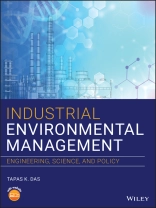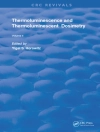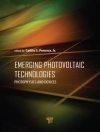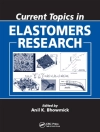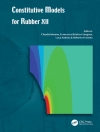Provides aspiring engineers with pertinent information and technological methodologies on how best to manage industry’s modern-day environment concerns
This book explains why industrial environmental management is important to human environmental interactions and describes what the physical, economic, social, and technological constraints to achieving the goal of a sustainable environment are. It emphasizes recent progress in life-cycle sustainable design, applying green engineering principles and the concept of Zero Effect Zero Defect to minimize wastes and discharges from various manufacturing facilities. Its goal is to educate engineers on how to obtain an optimum balance between environmental protections, while allowing humans to maintain an acceptable quality of life.
Industrial Environmental Management: Engineering, Science, and Policy covers topics such as industrial wastes, life cycle sustainable design, lean manufacturing, international environmental regulations, and the assessment and management of health and environmental risks. The book also looks at the economics of manufacturing pollution prevention; how eco-industrial parks and process intensification will help minimize waste; and the application of green manufacturing principles in order to minimize wastes and discharges from manufacturing facilities.
* Provides end-of-chapter questions along with a solutions manual for adopting professors
* Covers a wide range of interdisciplinary areas that makes it suitable for different branches of engineering such as wastewater management and treatment; pollutant sampling; health risk assessment; waste minimization; lean manufacturing; and regulatory information
* Shows how industrial environmental management is connected to areas like sustainable engineering, sustainable manufacturing, social policy, and more
* Contains theory, applications, and real-world problems along with their solutions
* Details waste recovery systems
Industrial Environmental Management: Engineering, Science, and Policy is an ideal textbook for junior and senior level students in multidisciplinary engineering fields such as chemical, civil, environmental, and petroleum engineering. It will appeal to practicing engineers seeking information about sustainable design principles and methodology.
Sobre el autor
TAPAS K. DAS, Ph D, P.E., BCEE, is a fellow member of the American Institute of Engineers; past chair of the AICh E’s Environmental Division; and former chair of the Air Pollution Control Committee of the American Academy of Environmental Engineers. Dr. Das also served as an adjunct faculty member at several colleges and universities in Washington, and taught both undergraduate and graduate courses in environmental, civil, chemical, and mechanical engineering programs, and was a former assistant professor in the College of Natural Resources at the University of Wisconsin, Stevens Point.
